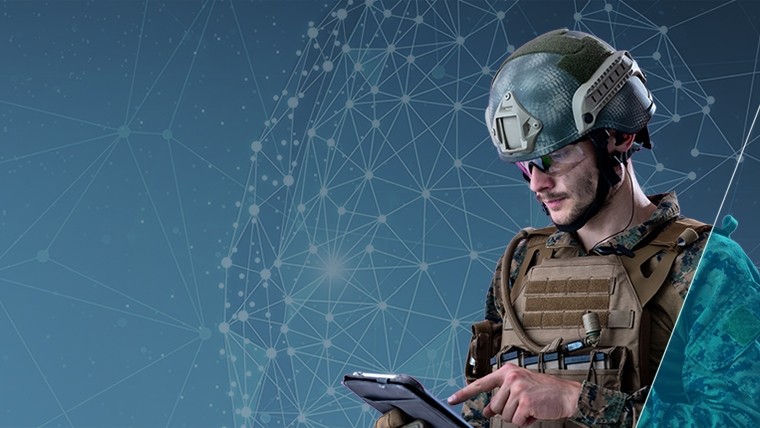Table of Contents
Artificial intelligence (AI) is rapidly transforming various aspects of society, including the way nations approach warfare. The integration of AI into military operations promises increased efficiency, precision, and decision-making speed. However, it also raises profound ethical concerns that require careful consideration. As AI technologies become more advanced and autonomous, the ethical implications of their use in warfare become increasingly complex. Balancing the benefits of AI with the moral, legal, and humanitarian considerations is essential in shaping the future of armed conflict.

The Promise of AI in Warfare
AI has the potential to revolutionize warfare by enhancing the capabilities of military forces. Autonomous systems, such as drones and unmanned vehicles, can perform reconnaissance, surveillance, and even combat missions with minimal human intervention. These systems can process vast amounts of data in real-time, enabling faster and more informed decision-making. AI can also assist in logistics, cybersecurity, and strategic planning, making military operations more efficient and effective.
One of the key advantages of AI in warfare is its ability to reduce the risk to human soldiers. Autonomous systems can be deployed in dangerous environments, minimizing the need for human presence on the battlefield. This could lead to fewer casualties and a reduced human cost of war. Additionally, AI can improve the precision of military operations, potentially reducing collateral damage and civilian casualties.
Ethical Concerns and Challenges
Despite its potential benefits, the use of AI in warfare raises several ethical concerns that must be addressed:
- Autonomy and Accountability: One of the most significant ethical dilemmas is the level of autonomy that should be granted to AI systems in warfare. Fully autonomous weapons, often referred to as &8220;killer robots,&8221; can select and engage targets without human intervention. This raises questions about accountability: who is responsible if an autonomous weapon causes unintended harm? The lack of human oversight in critical decisions, such as the use of lethal force, challenges traditional concepts of accountability and justice in warfare.
- Moral Decision-Making: Human soldiers are expected to make moral judgments in the heat of battle, taking into account the rules of engagement, proportionality, and the distinction between combatants and civilians. AI systems, however, lack the capacity for moral reasoning and cannot fully comprehend the ethical complexities of warfare. Relying on AI for decisions that involve life and death risks undermining the moral and humanitarian principles that govern armed conflict.
- Proliferation and Escalation: The deployment of AI in warfare could lead to an arms race, with nations competing to develop increasingly advanced and autonomous weapons systems. This could result in the proliferation of AI-powered weapons, potentially falling into the hands of non-state actors or rogue states. The widespread availability of such technology could lower the threshold for armed conflict, as nations may be more willing to engage in war if they can minimize their own casualties through AI-driven systems.
- Bias and Discrimination: AI systems are only as good as the data they are trained on. If the underlying data contains biases, these biases can be reflected in the AI&8217;s decisions. In the context of warfare, this could lead to discriminatory targeting or other unintended consequences. For example, facial recognition technology, which is increasingly being used in military applications, has been shown to have higher error rates for certain demographic groups. Inaccurate or biased AI systems could result in unlawful killings or other violations of international humanitarian law.
- Loss of Human Control: The increasing reliance on AI in warfare raises concerns about the erosion of human control over military operations. The concept of &8220;meaningful human control&8221; is central to the ethical use of force in armed conflict. If AI systems are allowed to operate with minimal human oversight, there is a risk that the chain of command could be undermined, leading to unintended or uncontrollable consequences on the battlefield.

Legal and Regulatory Considerations
The ethical challenges posed by AI in warfare necessitate a robust legal and regulatory framework to govern its use. International humanitarian law (IHL), which sets the rules for conduct during armed conflict, is already struggling to keep pace with technological advancements. While IHL provides guidelines on the principles of distinction, proportionality, and necessity, applying these principles to AI systems is a complex and evolving challenge.
There is an ongoing debate about whether new international treaties or agreements are needed to regulate the use of AI in warfare. Some advocates call for a ban on fully autonomous weapons, arguing that they are inherently unethical and should not be developed or deployed. Others propose a more nuanced approach, suggesting that AI systems should be designed with built-in safeguards to ensure human oversight and compliance with international law.
The Role of International Cooperation
Addressing the ethical implications of AI in warfare requires international cooperation and dialogue. Nations must work together to establish norms, standards, and regulations that govern the development and use of AI in military contexts. This includes ensuring transparency in AI research and development, sharing best practices, and fostering collaboration between governments, international organizations, and the private sector.
International organizations such as the United Nations (UN) and the International Committee of the Red Cross (ICRC) play a critical role in facilitating discussions on the ethical use of AI in warfare. Multilateral forums provide an opportunity for states to negotiate agreements, share concerns, and build consensus on how to manage the risks associated with AI in armed conflict.

Conclusion
The integration of AI into warfare presents both opportunities and challenges. While AI has the potential to enhance military capabilities and reduce the human cost of conflict, it also raises profound ethical questions that must be carefully considered. As AI technologies continue to advance, it is essential to strike a balance between innovation and ethical responsibility. By fostering international cooperation, establishing clear legal frameworks, and ensuring that human values remain at the core of military decision-making, the global community can navigate the ethical challenges of AI in warfare and shape a future where technology serves the cause of peace and security.
